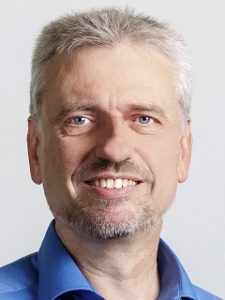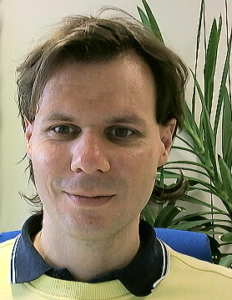NHR PerfLab Seminar: New Features in MPI 4.0 (October 18, hybrid event)
We are happy to announce the next NHR PerfLab Seminar, which will take place as a hybrid event. Everyone is warmly invited to attend the talk in person. In addition, participants can join via Zoom.
Speaker: Dr. Rolf Rabenseifner/Dr. Tobias Haas, High-Performance Computing Center Stuttgart (HLRS)
Title: New Features in MPI 4.0 (slides available)
Date and time: Tuesday, October 18, 2:00 p.m. – 3:00 p.m.
Place: RRZE e-Studio (Martensstr. 1, room 2.038)
Abstract: MPI-4.0 is a major update of the Message Passing Interface standard. It includes significant new functionality. The largest changes are the addition of large-count versions of many routines, persistent collectives, partitioned communications for hybrid MPI+OpenMP, the Sessions Model as an alternative way to initialize MPI for library developers, new ways for the hardware-based split of communicators, clarifications of the neighbor communication, application info assertions, and improvements to the definitions of error handling. In addition, there are a number of smaller improvements and corrections including some semantic changes and warnings. An outlook on MPI-4.1 and 5.0 includes a discussion of the progress rules of MPI and errata on the MPI shared memory interface.
The talk wants to answer questions like “What can I do with it?”, “When is this important?”, and “What’s behind?”.
Speakers’ bios:
 Rolf Rabenseifner studied mathematics and physics at the University of Stuttgart. Since 1984, he has been working at the High-Performance Computing-Center Stuttgart (HLRS). In his dissertation he developed a controlled logical clock as global time for trace-based profiling of parallel and distributed applications.
Rolf Rabenseifner studied mathematics and physics at the University of Stuttgart. Since 1984, he has been working at the High-Performance Computing-Center Stuttgart (HLRS). In his dissertation he developed a controlled logical clock as global time for trace-based profiling of parallel and distributed applications.
Since 1996, he is a member of the MPI-2 Forum and since Dec. 2007, he was in the steering committee of the MPI-3 Forum and responsible for the MPI-2.1 version of the standard. In workshops and summer schools he teaches parallel programming models at many universities and labs in Germany, Austria, and Switzerland.
 Tobias Haas studied physics and mathematics at the University of Stuttgart and obtained his PhD 2019 also from the University of Stuttgart for research in approximate solutions to nonlinear PDEs.
Tobias Haas studied physics and mathematics at the University of Stuttgart and obtained his PhD 2019 also from the University of Stuttgart for research in approximate solutions to nonlinear PDEs.
He joined HLRS’s training team in 2021. His focus at HLRS is on MPI, OpenMP and programming models for accelerators such as CUDA, HIP and SYCL.
See https://hpc.fau.de/research/nhr-perflab-seminar-series/ for past and upcoming NHR PerfLab seminar talks.

